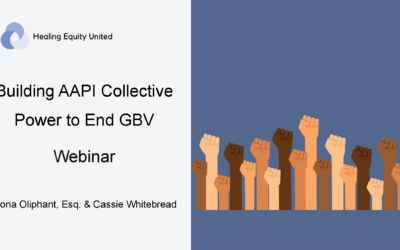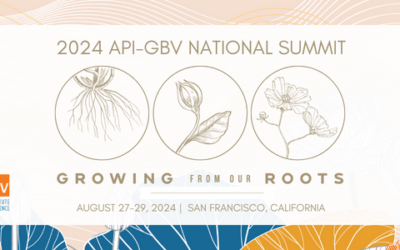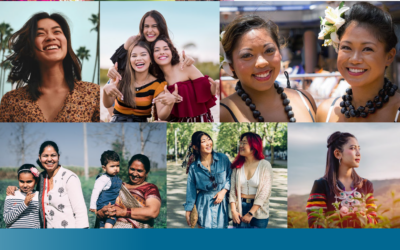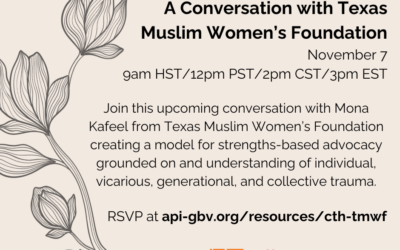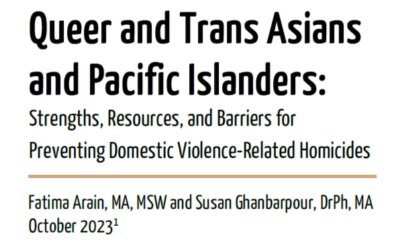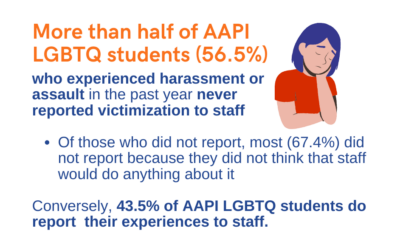- Census data on demographics and English proficiency
- Statistics on domestic violence and other forms of abuse
- Resources such as links to translated materials and national/international service directories
- Lifetime Spiral of Gender Violence, in English and Korean
Related Resources
API-GBV Applauds the Revisions to Collecting Federal Data on Race and Ethnicity Statistical Policy Directive No. 15: Standards for Maintaining, Collecting, and Presenting Federal Data on Race and Ethnicity
April 1, 2024 Oakland, CA-- The Asian Pacific Institute on Gender-Based Violence (API-GBV) applauds the Biden Administration's announcement of revisions to Statistical Policy Directive No. 15 (SPD 15): Standards for Maintaining, Collecting, and Presenting Federal Data...
Building AAPI Collective Power to End GBV
March 7, 8am HST/11am PST/1pm CST/2pm ESTAsians, Asian Americans, and Pacific Islanders (AAPIs) are often left out of conversations around diversity, equity, inclusion, and belonging (DEIB) in the U.S. Often lumped together as a “model minority,” certain AAPI groups...
2024 APi-GBV National Summit: Growing From Our Roots
Latest Update: Early Bird Registration Open Now Through June 1!See all available API-GBV National Summit information below:This page will continue to be updated as more information is released. For any technical issues or additional questions, please contact our team...
Connected and concerned: Online sexual harassment of teenagers of Asian descent on dating platforms
February 29, 8am HST/11am PST/1pm CST/2pm ESTGenerative AI, with its ability to create morphed photos and deepfakes, is negatively impacting teenagers, especially female teenagers of Asian descent, online and influencing their identity in digital spaces. This...
Impact Report FY22: Growing Stronger Together to Build Collective Power
The Asian Pacific Institute on Gender-Based Violence (API-GBV) is a culturally specific national resource center on domestic violence, sexual violence, trafficking, and other forms of gender-based violence in Asian/Asian-American and Pacific Islander (AAPI)...
Culture, Trauma, and Healing: A Conversation with Texas Muslim Women’s Foundation
November 7, 9am HST/12pm PST/2pm CST/3pm ESTIn our work, we recognize that cultural-responsiveness and trauma-informedness are not end goals, but a continuous process of learning and adapting our advocacy to best meet the layered and changing needs of survivors. We...
Queer and Trans Asians and Pacific Islanders:
Strengths, Resources, and Barriers for Preventing Domestic Violence-Related Homicides
This report presents a groundbreaking qualitative research project focusing on the prevention of domestic violence-related homicides among queer and trans Asians and Pacific Islanders (QTAPI). It uncovers the complex web of risk factors, including isolation and...
AAPI LGBTQ+ Experiences of GBV
This factsheet summarizes the layered needs and experiences of lesbian, gay, bisexual, transgender, queer, and more (LGBTQ+) Asian, Asian American, and Pacific Islander (AAPI) survivors and communities in the U.S., based on the current literature available. Although...
July 2012
